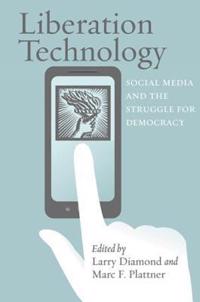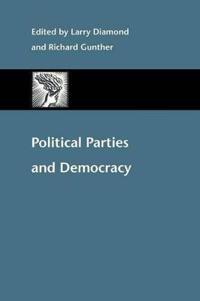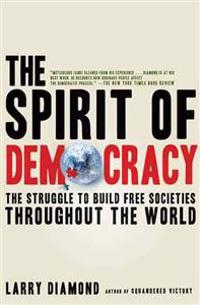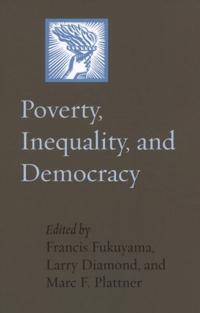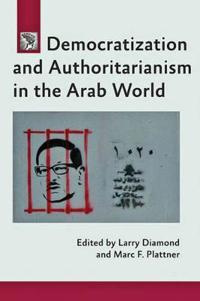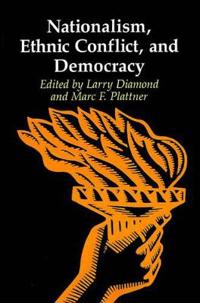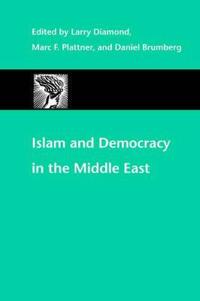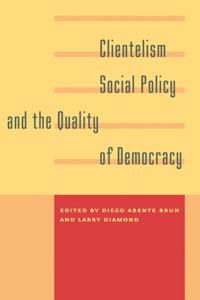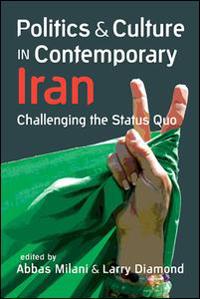Liberation Technology (Pocket)
avLarry Diamond, Marc F. Plattner, Larry Diamond
ISBN: 9781421405681 - UTGIVEN: 201206The revolutions sweeping the Middle East provide dramatic evidence of the role that technology plays in mobilizing citizen protest and upending seemingly invulnerable authoritarian regimes. A grainy cell phone video of a Tunisian street vendor's self-immolation helped spark the massive protests that[...]
Developing Democracy (Häftad)
avLarry Diamond
ISBN: 9780801861567 - UTGIVEN: 1999-05In this book noted political sociologist Larry Diamond sets forth a distinctive theoretical perspective on democratic evolution and consolidation in the late twentieth century. Rejecting theories that posit preconditions for democracy-and thus dismiss its prospects in poor countries-Diamond argues i[...]
Political Parties and Democracy (Häftad)
avLarry Diamond
ISBN: 9780801868634 - UTGIVEN: 2001-12Political parties are one of the core institutions of democracy. But in democracies around the world-rich and poor, Western and non-Western-there is growing evidence of low or declining public confidence in parties. In membership, organization, and popular involvement and commitment, political parti[...]
The Spirit of Democracy: The Struggle to Build Free Societies Throughout the World (Häftad)
avLarry Diamond
ISBN: 9780805089134 - UTGIVEN: 200902"Meticulous . . . Diamond] gleaned that . . . the fate of democracy was not driven by events but by the passion of individual people."--"The New York Times Book Review"In 1974, nearly three-quarters of all countries were dictatorships; today, more than half are democracies. Yet recent efforts to pr[...]
Poverty, Inequality, and Democracy (Pocket)
avFrancis Fukuyama, Larry Diamond, Marc F. Plattner
ISBN: 9781421405704 - UTGIVEN: 201202The rise of populism in new democracies, especially in Latin America, has brought renewed urgency to the question of how liberal democracy deals with issues of poverty and inequality. Citizens who feel that democracy failed to improve their economic condition are often vulnerable to the appeal of po[...]
Clientelism, Social Policy, and the Quality of Democracy (Inbunden)
avDiego Abente Brun, Larry Diamond
ISBN: 9781421412283 - UTGIVEN: 2014-01-01Democratization and Authoritarianism in the Arab World (Häftad)
avLarry Diamond
ISBN: 9781421414164 - UTGIVEN: 2014-05Beginning in December 2010, a series of uprisings swept the Arab world, toppling four longtime leaders and creating an apparent political opening in a region long impervious to the "third wave" of democratization. Despite the initial euphoria, the legacies of authoritarianism-polarized societies, po[...]
Nationalism, Ethnic Conflict, and Democracy (Pocket)
avLarry Jay (EDT) Diamond, Marc F. (EDT) Plattner, Larry Jay Diamond
ISBN: 9780801850028 - UTGIVEN: 1994-09After an introduction by the volume editors, the book offers a look at the complex relationship between nationalism and democracy. The authors then examine the special challenges facing democracy in ethnically divided societies.[...]
Islam and Democracy in the Middle East (Pocket)
avLarry Jay (EDT) Diamond, Marc F. (EDT) Plattner, Daniel (EDT) Brumberg
ISBN: 9780801878480 - UTGIVEN: 2003-07Islam and Democracy in the Middle East provides a comprehensive assessment of the origins and staying power of Middle East autocracies, as well as a sober account of the struggles of state reformers and opposition forces to promote civil liberties, competitive elections, and a pluralistic vision of [...]
Clientelism, Social Policy, and the Quality of Democracy (Pocket)
avDiego (EDT) Abente Brun, Larry (EDT) Diamond, Diego (EDT) Abente Brun
ISBN: 9781421412290 - UTGIVEN: 2014-01What happens when vote-buying becomes a means of social policy? Although one could cynically ask this question just as easily about the United States' mature democracy, Diego Abente Brun and Larry Diamond ask this question about democracies in the developing world through an assessment of political [...]
Politics and Culture in Contemporary Iran (Pocket)
avAbbas (EDT) Milani, Larry (EDT) Diamond, Abbas (EDT) Milani
ISBN: 9781626371477 - UTGIVEN: 2015-01Despite the relative calm apparent in Iran today, there is unmistakable evidence of political, social, and cultural ferment stirring beneath the surface. The authors of Politics and Culture in Contemporary Iran ua unique group of scholars, activists, and artistsuexplore that unrest and its challenge[...]

